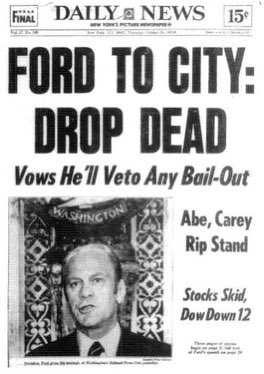
I grew up around a lot of different types of people. I had friends across every spectrum - Black, White, Asian, Jewish, Muslim, etc. I got to know well folks who called themselves “Rednecks,” folks from the ‘hood and people from everywhere in between.
That’s how I like it.
That’s how I like it.
I like being in environments in which everybody isn’t the same, however you apply that meaning. I’m comfortable in my own skin and am just as relaxed if I’m the only black person in a room as I am in any other situation. But I love people and am fascinated by them.
I like it when I see a bunch of people in a room all from different backgrounds. I learn a LOT from talking to people and learning to see things from other points of view. I love all people and being around all people.
But, to many people, this prospect is frightening.
But, to many people, this prospect is frightening.
I’m convinced that there is an actual phobia that some people have about people who are different from them. And it’s a crippling fear. Fear of being misinterpreted. Fear of stereotypes. Fear that one group’s inclusion means their own group’s exclusion. Fear of loss.
What I hope more people realize is that differences between people - not just ethnic differences but cultural differences and regional differences, are an opportunity to learn. Being around people who aren’t like us gives us a chance to learn something new.
We sometimes find new things we like. People’s backgrounds. Their family stories. Different ways of looking at things.
Most importantly, the more we really get to know other people, the more we realize that we share the same core features of humanity.
Most importantly, the more we really get to know other people, the more we realize that we share the same core features of humanity.
We’re all fallen and imperfect. Our moral character, regardless of our background, ranges. We all are struggling to survive in one way or another. We can all be motivated by love or by hate, by benevolence or by greed.
But the most important lessons in my life, outside of my faith, haven’t come from books, from formal education or any of that other stuff. It’s been from just talking to people who aren’t like me and getting to know them well.
It’s amazing what you can learn from people.
It’s amazing what you can learn from people.
Another thing. A lot of us wonder to ourselves why other groups of people do things differently than we do. One benefit of getting to know people from different groups is that we can ASK.
Most rational people won’t get mad when we ask questions instead of making assumptions.
Most rational people won’t get mad when we ask questions instead of making assumptions.
Some things I’ve learned:
Listen to WHAT people say, not HOW people say it. Some people are eloquent and some aren’t. People have a lot of different types of accents and cadences. But if you get tripped up by those differences, you’ll miss some brilliant things people say.
Listen to WHAT people say, not HOW people say it. Some people are eloquent and some aren’t. People have a lot of different types of accents and cadences. But if you get tripped up by those differences, you’ll miss some brilliant things people say.
A lot of different groups of people have suffered forms of persecution. It’s not all the same in intensity or duration. But it’s still real.
I had a buddy whose family was forced to leave the Soviet Union when he was a kid because they were Jewish.
I had a buddy whose family was forced to leave the Soviet Union when he was a kid because they were Jewish.
Another guy I know from an Eastern European nation told me stories about how his grandfather was sent to Siberia by Stalin. And how even decades later, as the younger generation marched for reform, the older folks were still too afraid to speak up. “What if it doesn’t work?”
I have a buddy who is a white guy married to a black woman. When they had kids, he confided in me that he wanted people to acknowledge both sides of their children’s ancestry and not just see them as black only. I was glad he confided in me as I never thought of that POV before.
I have a buddy from an East African nation and we often talk politics. The night after the election, when it seemed like Trump might have won, I joked that I was going to move to his home country. He laughed. “We’ve got our own Trump there!”
Lots of stories. But people are fascinating. We’re all just as similar as we are different, if you take the time to get to know people below the surface level.
• • •
Missing some Tweet in this thread? You can try to
force a refresh








